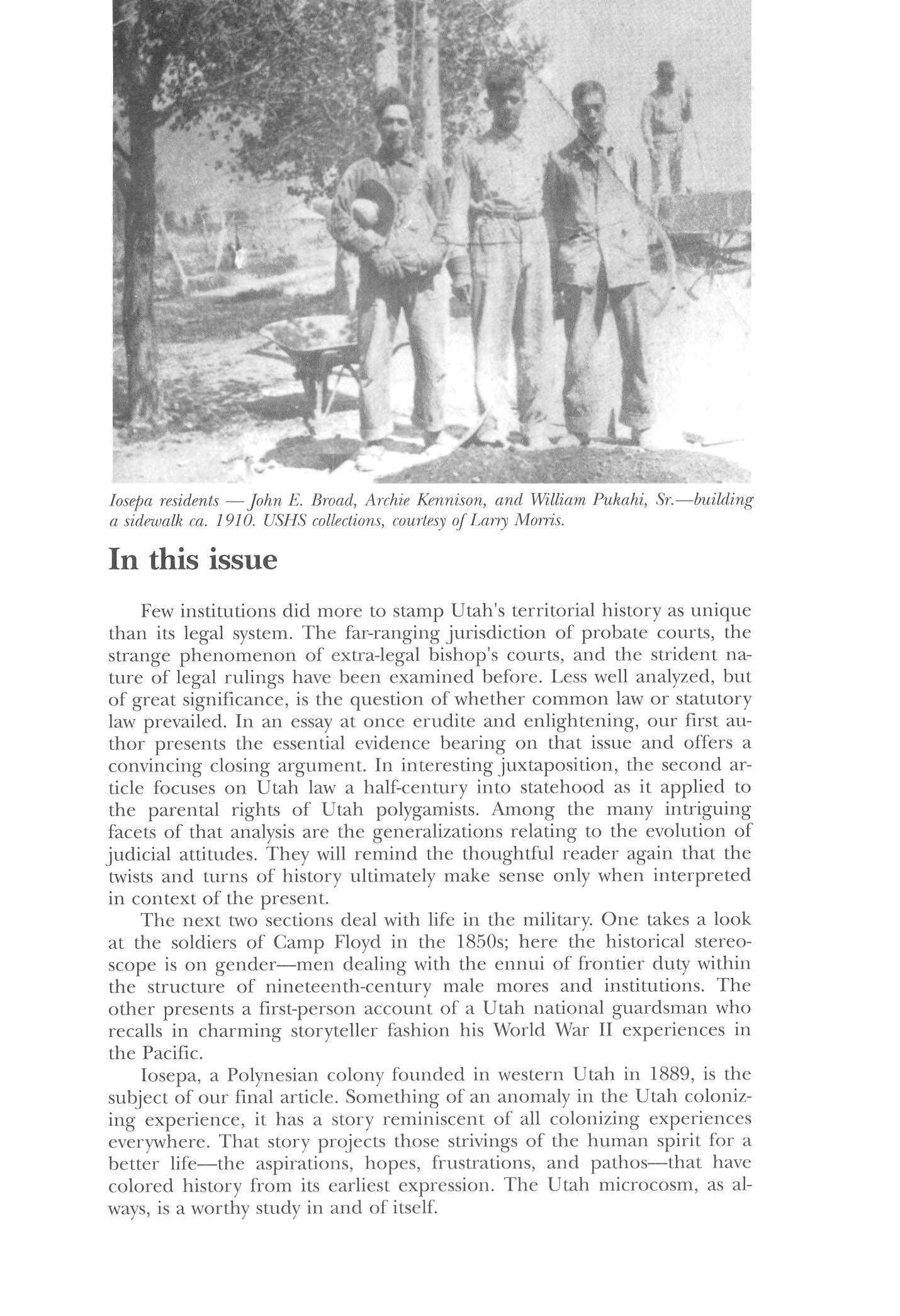
2 minute read
In This Issue
Iosepa residents —John E. Broad, Archie Kennison, and William Pukahi, Sr. building a sidewalk ca. 1910. USHS collections, courtesy of Larry Morris.
Few institutions did more to stamp Utah's territorial history as unique than its legal system. The far-ranging jurisdiction of probate courts, the strange phenomenon of extra-legal bishop's courts, and the strident nature of legal rulings have been examined before. Less well analyzed, but of great significance, is the question of whether common law or statutory law prevailed. In an essay at once erudite and enlightening, our first author presents the essential evidence bearing on that issue and offers a convincing closing argument. In interesting juxtaposition, the second article focuses on Utah law a half-century into statehood as it applied to the parental rights of Utah polygamists Among the many intriguing facets of that analysis are the generalizations relating to the evolution of judicial attitudes. They will remind the thoughtful reader again that the twists and turns of history ultimately make sense only when interpreted in context of the present.
The next two sections deal with life in the military. One takes a look at the soldiers of Camp Floyd in the 1850s; here the historical stereoscope is on gender—men dealing with the ennui of frontier duty within the structure of nineteenth-century male mores and institutions. The other presents a first-person account of a Utah national guardsman who recalls in charming storyteller fashion his World War II experiences in the Pacific.
Iosepa, a Polynesian colony founded in western Utah in 1889, is the subject of our final article Something of an anomaly in the Utah colonizing experience, it has a story reminiscent of all colonizing experiences everywhere. That story projects those strivings of the human spirit for a better life—the aspirations, hopes, frustrations, and pathos—that have colored history from its earliest expression The Utah microcosm, as always, is a worthy study in and of itself.








